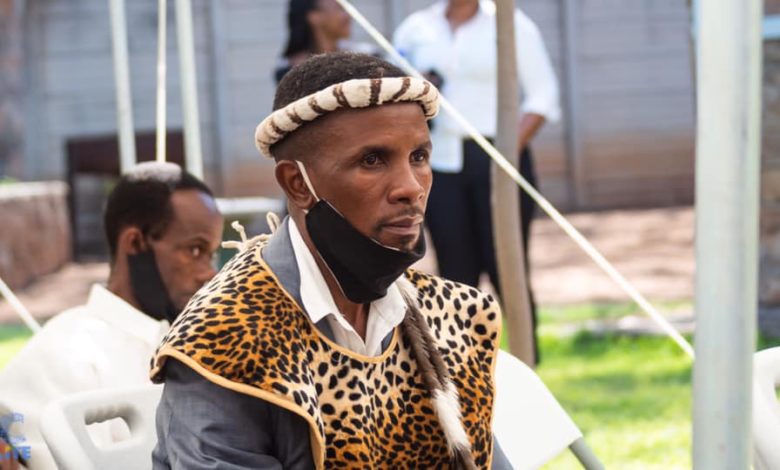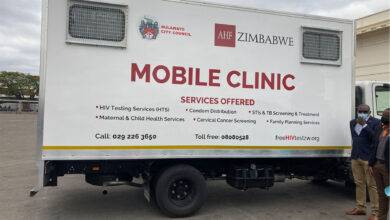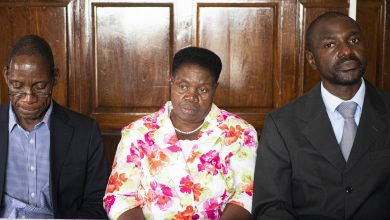Suspension of mobile voter registration part of the rigging machinery: MRP

Mthwakazi Republic Party (MRP) has claimed that the postponement of the mobile voter registration exercise by the Zimbabwe Electoral Commission (ZEC) is another way of rigging, as only a few people can access registration centres thereby disenfranchising ‘would be’ voters.
ZEC had initially scheduled to start mobile registration on December 6, 2021, ahead of the 2023 harmonised elections but postponed the exercise noting that the Registrar General’s Office had no resources to issue out national identity cards, which were a prerequisite for voter registration.
However, MRP president, Mqondisi Moyo argued that this was done to frustrate people who want to register as voters.
“This is a deliberate ploy by ZEC working under instructions from Zanu PF to discourage people from voting, considering that current registration centres are few,” he said.
Moyo indicated the electorate had been clamouring for mobile voter registration centres.
“The centres have remained out of reach for many,” he said, “and this separation of registration centres from the people has inevitably led to a very low voter registration turnout.”
This low turnout reflected the inefficiency of the electoral system in the country, Moyo said.
“Statistics, for example, reveal only 257 924 have registered to vote. This is because all along there had been only one registration point in Bulawayo.”
The MRP leader said it was worrying that those eligible would be excluded.
“The probability is high that the majority of our people who would have come for the festive season from Botswana, South Africa and many other countries, will return without having registered. If ZEC had stuck to the date, more people would have registered by the time they leave,” he said.
“I have no doubt this is a ploy by the Zanu captured ZEC to deny the majority of our people an opportunity to vote. This would have been an opportunity for them to do so, but Zanu fearing embarrassment, has come up with yet another rigging trick in the form of postponing mobile registration.”
If people do not register, the number of constituencies in provinces can be reduced once delimitation of boundaries occurs, Moyo said.
He noted the total number of constituencies in the country would still remain at 210 despite Bulawayo and Matabeleland losing constituencies.
“I am particularly concerned about the intention to reduce the number of constituencies in Bulawayo and other regions of Mthwakazi. There are 12 constituencies in Bulawayo and may be reduced to 10. Matabeleland North has 13 and may be reduced to 12. Matabeleland South has 13 and may be 10,” he alleged.
“This means Mthwakazi will be underrepresented in parliament, further translating to reduction in resource allocation for the region. The bulk of resources that sustain Zimbabwe are from Matabeleland and Midlands, but the same region is allocated very little.”
He further claimed Mashonaland provinces except Masvingo may not be affected.
“Harare, for example, may see its constituencies increased from 29 to 33, Manicaland may increase by one from the current 26. Mashonaland West may increase by two from 22. Mashonaland Central will increase from 18 to 20.”
“As MRP we are monitoring all such inconsistencies and will hold government accountable. We can not watch while Mthwakazi is systematically denied the right to representation in governance, based on manipulated figures,” he said.
“We call upon ZEC to extend mobile voter registration to all our people. These centers should be open during the festive season to enable our people in the diaspora to register.”
The Zimbabwe Election Support Network (ZESN) also implored the government to resource the Civil Registry so it could issue national identity cards to eligible citizens.
“Young people, citizens who lost IDs and those who have become eligible have been finding it difficult to get the IDs, threatening their disenfranchisement in electoral processes. Given that young people constitute the biggest demographic group in Zimbabwe, their participation in elections is critical as democracy is essentially about the participation of the majority,” said the network.






